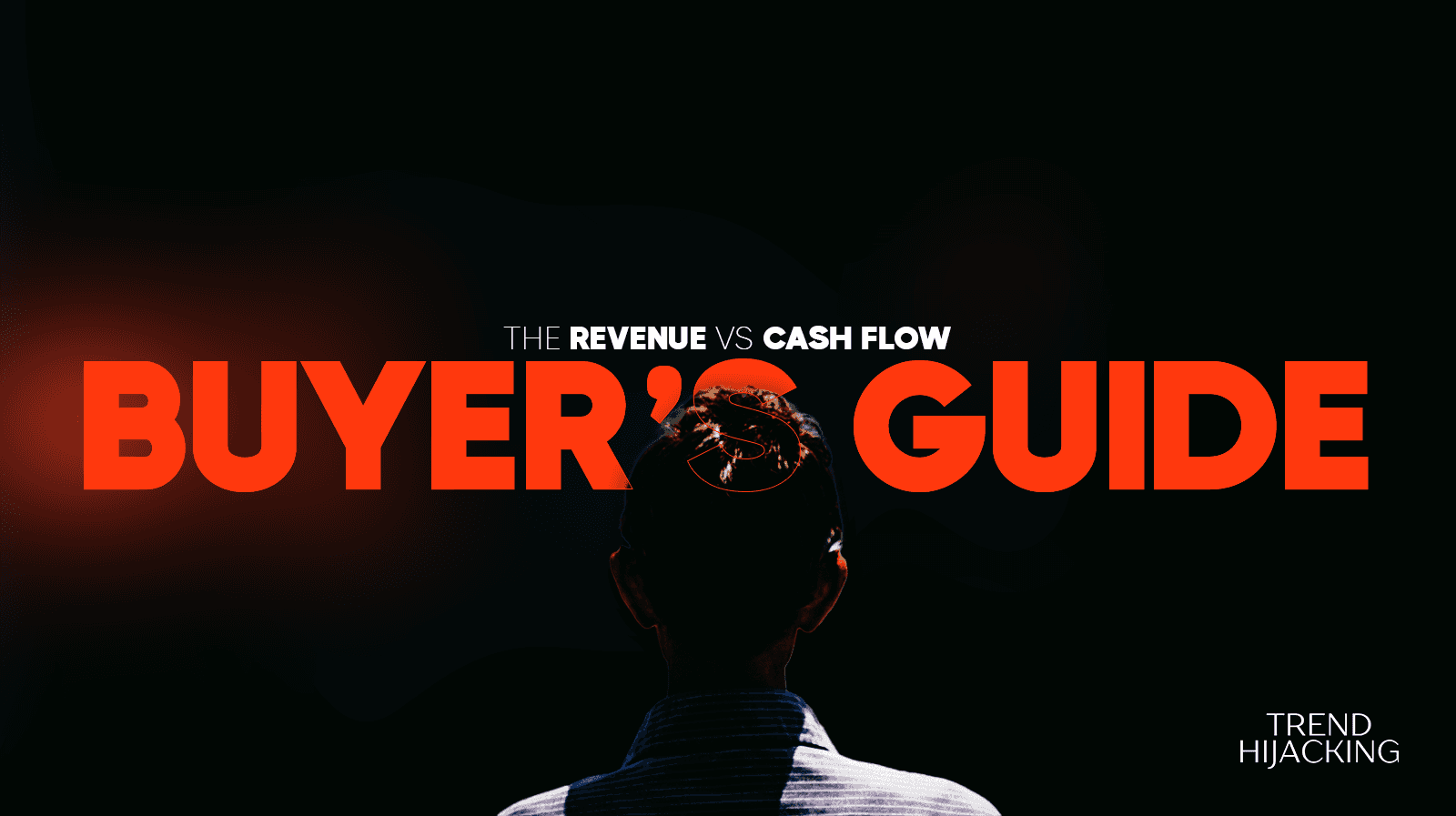
How To Finance A Business Acquisition Without Overburdening Yourself
So you have finally found the perfect small business to buy or you're simply eyeing a strategic acquisition?
Well, the next challenge is figuring out the best way to fund it.
The truth about financing a business acquisition is that it can feel like you're trying to piece together a complex puzzle.
There are so many factors to consider—and each financing option you choose comes with its own set of terms, risks, and implications.
So, how do you smoothly navigate through this financing phase?
This guide will walk you through the best ways to finance a business acquisition, from traditional loans to more creative investment strategies. This way, you can make a more informed decision on your investment.
What is business acquisition financing?

Business acquisition financing is the process of securing the funds needed to purchase an existing business.
You can do this through various financing options such as loans, equity investments, or a combination of debt and equity financing.
The ultimate goal here is to obtain enough capital to cover the purchase price and any associated costs, such as legal fees and working capital.
When acquiring a business, you’ll need to evaluate the best financing option based on your specific situation.
Some of the most common financing methods include:
Traditional bank loans
SBA loans
Venture capital
Seller financing (where the seller agrees to be paid in installments over time)
Choosing the right method requires you to do thorough financial planning and analysis of the business's cash flow, profitability, and future growth prospects.
Understanding the different types of financing will help you make an informed decision, to ensure your acquisition aligns with your financial goals.
We Help You Buy / Build, Manage and Scale E-commerce Brands for an EXIT
E-commerce Simplified for Busy Individuals – We handle the buying, building, and scaling, so you can focus on what matters.
Growth-Focused Strategies – From sourcing to marketing, we drive growth and prepare you for a profitable exit.
Expertly Managed Exits – We build a high-value brand designed for a Lucrative exit.
Use your own savings

One of the most straightforward ways to finance a business acquisition is through bootstrapping, which means using your own savings.
No debt, no interest rates, and no investors to answer to—what’s not to love?
However, this route does come with risks. While it gives you full control, bootstrapping can drain your personal finances.
If you're confident in the business and its growth potential, this could be a great option. But if things go south, it could impact your financial stability.
Before you go this route, we strongly advise you to conduct a thorough financial analysis for acquisitions you’re eyeing to ensure it’s a risk you can afford.
Pros:
No need to take on debt or give up equity
Full control over the business remains with the owner
Lower risk of financial pressure from investors or lenders
Allows for gradual, organic growth
Cons:
Limited resources can slow down business expansion
High personal financial risk
Might miss out on bigger opportunities due to lack of capital
Cash flow constraints could affect business operations
Let the seller help you out

If you don’t have personal savings set aside for financing your acquisition, then you may consider seller financing.
As you can easily tell, seller financing implies the current owner of the business financing your acquisition. This is probably one of the more creative financing solutions for business buying.
Here’s how it works:
The seller acts as your lender, thus allowing you to pay only a portion of the agreed sale price over time, usually with interest.
Why is this option attractive? First, it reduces the amount of upfront cash you need, making it easier to secure the business.
Second, the seller is motivated to ensure the business continues to thrive since they still have a financial stake.
But be cautious. Make sure your terms are clear and you do proper due diligence in financing to avoid complications down the line.
Pros:
Typically easier to secure than bank loans
More flexible repayment terms negotiated with the seller
Low upfront capital required
Cons:
Interest rates can be higher than traditional loans
The seller may require a significant down payment
May still require securing additional financing sources
Consider SBA loans (Government-backed funding)

If you're looking to buy a small business, small business loans backed by the Small Business Administration (SBA) are a great option for you.
SBA loans usually offer you low interest rates and long repayment terms, making them ideal for first-time buyers.
However, these loans aren’t all roses for you. For instance, the application process can be lengthy, and there are strict eligibility requirements.
You’ll also need to show solid financial planning for buying a business, including how you intend to make the business profitable under your ownership.
Nonetheless, if you’re still willing to go through this whole process, SBA loans are one of the most accessible business acquisition financing options for you.
Pros:
Lower down payment requirements
Long repayment terms compared to other loans.
SBA guarantees a portion of the loan, making it less risky for lenders
Cons:
Lengthy approval process with lots of paperwork
Strict eligibility requirements, especially for newer businesses
Get investors involved in your business

You may also consider equity financing as another viable method of financing your acquisition.
When thinking about equity financing for acquisitions, it’s important to know that it involves raising money by selling shares in your business.
The investor options for business acquisition funding can be particularly appealing if you don't want to acquire that business on debt.
However, you should fully understand that you’ll be giving away a portion of ownership. This means sharing profits and, in some cases, decision-making power.
But if you find the right investors who align with your vision, it can be a win-win situation.
Make sure you work out the terms with your investors clearly, so both parties know what's expected.
Pros:
No need for repayment, reducing financial pressure
Investors may offer valuable expertise and networks
Can be a good option if you don't want to take on debt
Cons:
You give up partial ownership and control
Investors may have input on decision-making, limiting autonomy
Profits must be shared with equity holders
We Help You Buy / Build, Manage and Scale E-commerce Brands for an EXIT
E-commerce Simplified for Busy Individuals – We handle the buying, building, and scaling, so you can focus on what matters.
Growth-Focused Strategies – From sourcing to marketing, we drive growth and prepare you for a profitable exit.
Expertly Managed Exits – We build a high-value brand designed for a Lucrative exit.
Go the traditional loan path

Another classic approach is debt financing for business purchases. This means borrowing money from a bank or another financial institution to fund your acquisition.
The best part about this method is that it gives you full control of the business. However, you should also keep in mind that it comes with monthly repayments and interest rates.
When considering this route, look at business acquisition loans specifically designed for such purchases. These loans often have favorable terms compared to generic business loans.
But remember, you’ll want to ensure the cash flow from the business can cover the loan payments to avoid falling into financial hardship.
Pros:
Retain full ownership of your business
Interest payments on loans are often tax-deductible
Predictable repayment schedule with fixed monthly payments
Cons:
Requires collateral, putting your assets at risk
Strict repayment terms, regardless of business performance
Can be challenging to qualify without a solid credit history or financials
Borrow against your business or personal assets

Leveraging your business or personal assets is another way you can finance your acquisition.
How to leverage assets for business purchase financing? It’s simple…
If you own assets, whether personal (like real estate) or business-related (like equipment or inventory), you can use them as collateral for a loan.
This method often results in lower interest rates because the lender has some security in case you default.
However, the risk is obvious—if the business doesn't perform well, you could lose your assets. Be sure to assess the financial risk and the potential reward before going down this path.
Pros:
Easier approval if you have strong assets, even with poor credit
Can be used to finance a larger portion of the acquisition
Loans are backed by tangible assets, reducing risk for lenders
Cons:
If the business underperforms, your assets could be seized
Limited to the value of the assets you're using as collateral
Higher interest rates compared to traditional loans
Invite venture capitalists

What if you’re eyeing a high-growth business and need more substantial funding? Well, in this case, venture capital for business acquisitions could be the way to go for you.
Venture capitalists (VCs) are known to invest in businesses they believe have huge growth potential, offering large sums of money in exchange for equity.
While this might sound like a dream, you should remember that VCs will want a significant say in how the business is run.
If you're comfortable with that level of involvement, this could be one of the best strategies for financing business acquisitions to consider.
Pros:
Access to large amounts of capital for scaling rapidly
Investors often bring industry expertise and connections
No loan repayments, reducing immediate financial strain
Cons:
Lose ownership and control as investors take equity
Pressure to achieve rapid growth and meet investors' expectations
Future profits will be shared with venture capitalists
Alternative funding options
If the traditional financing options don't cut it for you, there’s still some hope for you!
You can explore alternative ways to finance an acquisition like crowdfunding or peer-to-peer (P2P) lending.
Let’s briefly discuss what each of them entails:
Crowdfunding

It allows you to raise capital by pooling small contributions from a large group of people, typically through online platforms like Kickstarter or GoFundMe. For a business acquisition, this method lets potential investors or supporters contribute in exchange for equity, rewards, or future benefits.
This financing method doesn’t require you to take on debt or sell significant ownership upfront.
However, success in crowdfunding depends heavily on how well you promote your campaign and whether it resonates with your target audience.
Additionally, managing a successful campaign can be time-consuming and may require offering perks to contributors, which could cut into your profits.
Peer-to-peer lending

P2P lending connects you (the borrower) directly with individual lenders through online platforms like LendingClub or Prosper. It serves as an alternative to traditional bank loans, offering you a more flexible and often faster route to financing. For a business acquisition, P2P lending can provide you with the necessary funds, typically at lower interest rates than conventional loans.
The approval process for this type of funding is more lenient, making it accessible for those with limited collateral or poor credit history.
However, P2P loans usually come with shorter repayment terms, and interest rates may increase if the borrower’s creditworthiness is questionable.
Build from scratch instead…

Why not build from the ground up? While buying a business can be tempting, starting fresh often offers greater potential for success. With your own brand, you have full control—free from hidden challenges that come with inherited operations.
We understand that the thought of starting from scratch can be daunting. The weight of responsibility and the unknown can be overwhelming. That’s where we step in.
At Trend Hijacking, our done-for-you automation program simplifies the process of launching your business. From initial setup to management and scaling, we take care of it all, allowing you to focus on growth without the stress.
Here’s what you gain with our program:
Lower investment, greater opportunity: Our unique approach helps you launch a scalable business with significantly less capital compared to acquisitions.
Hands-on support every step of the way: You’re not alone in this journey. Our team handles everything from operations to scaling, so you can concentrate on what matters most.
Long-term success built in: This isn’t just about a quick launch. We ensure your business is positioned for sustainable growth by leveraging current trends and avoiding common pitfalls.
With Trend Hijacking, you can create a future-proof business without the headaches of traditional routes. Why take on the challenges of an acquisition when you can start fresh with a dedicated team? Schedule a free call with us today, and let’s begin your journey!
Closing Thoughts
Whether you're considering how to fund a business purchase or exploring steps to finance a business acquisition, there are plenty of options available to you. Each financing strategy comes with its own set of advantages and challenges. Your decision will depend on your financial situation, the type of business you're acquiring, and your long-term goals.
If building your business from scratch sounds more appealing to you, our done-for-you automation program at Trend Hijacking is designed with you in mind. We’ll help you launch a scalable online business with manageable capital and higher growth potential. Reach out here for a free consultation today!
A Done-For-You E-commerce Business
Discover how we Build, Launch, and Scale a 6-figure/month Business for You
Learn more
The 6-Step Blueprint to E-Commerce Acquisition
See how we Acquire, Convert, and Scale with Real Case Studies to Prove It.



















